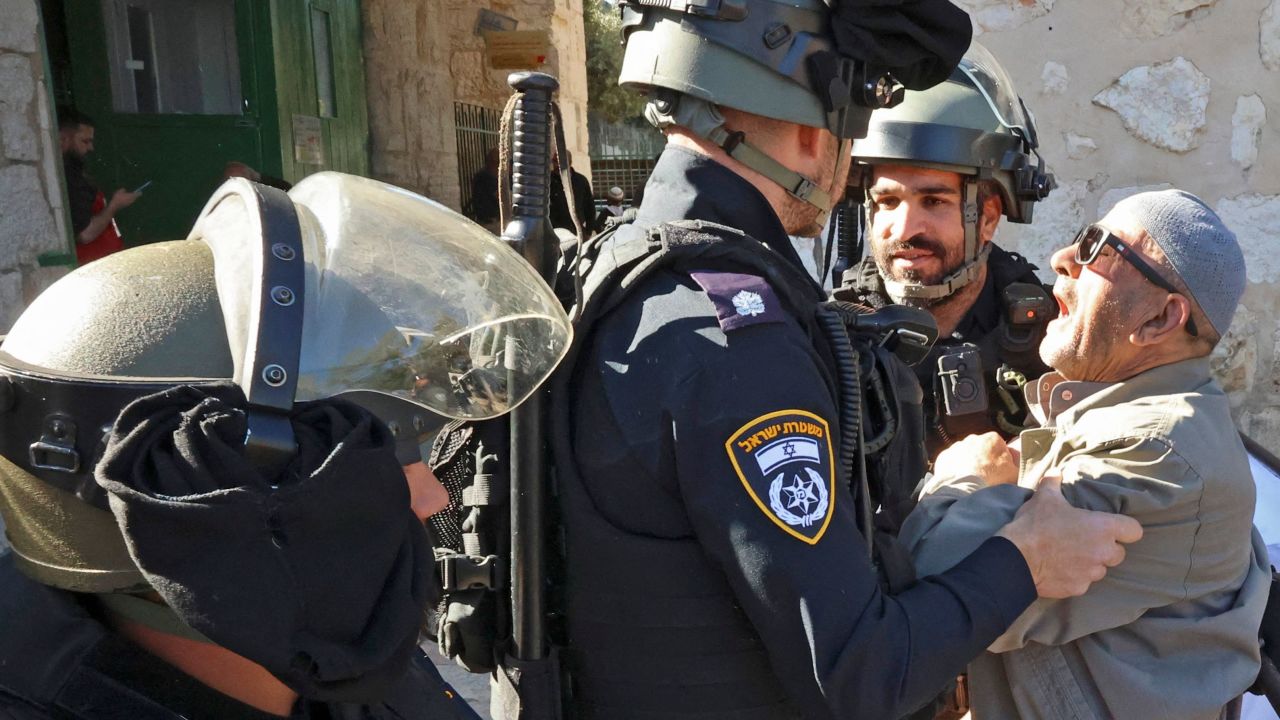
“This morning I ascended to the Temple Mount, our temple that was destroyed because of gratuitous hatred,” Ben-Gvir said on the platform formerly known as Twitter. It is the third time that Ben-Gvir, a far right-wing minister, has visited the site, which houses the al-Aqsa mosque, since becoming a minister at the end of last year. Tension at the holy site has been the spark for many previous conflicts between Israelis and Palestinians.
Thursday is a Jewish day of mourning known as Tisha B’Av, on which Jews commemorate the calamities that have befallen them – primarily the destruction of two ancient temples that stood on the Temple Mount, the holiest site in Judaism.
His visit was condemned by the Palestinian Authority and the government of Jordan, which has been the custodian of Jerusalem’s holy sites since 1924 and sees itself as the guarantor of the religious rights of Muslims and Christians in the city. The Turkish and Egyptian governments also condemned the visit.
The Jordanian Foreign Ministry in a statement said that Ben-Gvir’s visit “represents a provocative and blatant breach of international law and the historical and legal status of Jerusalem and its sacred sites.” The Palestinian Authority called the visit to the site an effort at “imposing forcible changes on its historical and legal reality, as an integral part of the process of Judaizing Jerusalem.”

In a statement released by his party, Jewish Power, Ben Gvir placed his visit in the context of recent political upheaval in Israel.
“On this day, in this place, it is always important to remember – we are all brothers,” Ben-Gvir said. “Right, left, religious, secular. We are all the same people. And when a terrorist looks through the window, he does not differentiate between us and separate us. Unity is important, love of Israel is important.”
“This place, this is the most important place for the people of Israel where we have to go back and show our governability.”
Israel has been rocked by 29 consecutive weeks of protests against the government’s proposed judicial reforms. Israel’s Supreme Court on Wednesday said that it would in September hear challenges to a law enacted this week banning the court from rejecting government decisions based on “unreasonableness.”
The controversial bill passed by a vote of 64-0, with all members of the governing coalition voting for it, while all opposition lawmakers walked out of the chamber as the vote was taking place.
Ben-Gvir, one of the most divisive figures in Israeli politics, has been convicted in the past of anti-Arab racism and has said he believes that the status quo at Israel’s holy sites should be changed.
Under the so-called Status Quo agreement dating back to Ottoman rule of Jerusalem, only Muslims are allowed to pray inside the Al-Aqsa mosque compound, while non-Muslims can visit during set times. Israel and other states agreed to maintain access for Muslims to these holy sites after Israel captured them in the 1967 war.
Some religious nationalist Jewish groups have demanded access to the Temple Mount for Jewish prayer. There have been several instances of Jewish visitors conducting prayers in the disputed area, sparking outrage from Muslim authorities and forced removals by Israeli police.




